Welcome to the twenty-first episode of Dan Fournier’s Down the Rabbit Hole podcast.
Guest: Vanessa Dylyn
Vanessa Dylyn is a very successful, Emmy-nominated and Canadian Screen Award-winning producer whose recent work includes the investigative documentary film Covid Collateral for which she is the writer, Director and Producer.
I was therefore very glad that I was able to talk about this important film with her which I have already watched and was very impressed by.
Her film focuses on the devastating effects of public health policy on members of society, and how these policies – which included harsh lockdowns, business & school closures – were largely due to censorship of real science.
Join us for this fascinating conversation to discover how she overcame challenges in not only making this film, but getting it released for distribution into a market that is tightly controlled.
Alternative Podcast Link, listen on:
Spreaker (download the .mp3 for later listening)
Show Time Stamps
[00:00 to 00:54] Podcast intro.
[00:54 to 01:40] Welcoming Vanessa Dylyn, an Emmy-nominated and Canadian Screen Award-winning producer.
[01:42 to 06:53] Vanessa shares some of her documentary film Covid Collateral’s main revelations. This includes mention of some of the experts that were interviewed in the film.
[06:57 to 10:40] Making a film about the Covid-19 Pandemic is a challenge in and of itself. But, getting funders to fund it and distributors to release it is another. In this segment, Vanessa reveals the challenges she encountered in making this film and getting it to market, and how she used her industry wits to overcome them.
[10:46 to 15:16] “We forced people to die alone!” Vanessa previously stated in an interview with Brian Lilly from the National Post, referring to how the elderly weren’t permitted to have their loved ones next to them when they were passing away. Vanessa expands on this dark chapter in our history.
[15:17 to 19:19] In this segment, Vanessa explains how the media failed to provide balanced and opposing views from reputable scientists, among other failures by the fourth estate. Also be sure to watch the short video clip (link below in this post) for this part of the interview. She also discussed how fatality rates were overblown due to people dying with Covid-19 when it wasn’t the main cause of death. I also reported on this egregious failure on the part of the government (and the media) in my second most viewed Substack post.
[19:22 to 26:13] Here, we talk about how fear was propagated during the pandemic. I first mentioned how I had previously interviewed 1st generation Holocaust survivor Vera Sharav who had produced the 5-part docuseries Never Again Is Now Global and even wrote my own 188-page review on that series. I ask Vanessa who disseminated this fear and how it had been disseminated.
[26:14 to 28:19] What do you most hope to achieve with Covid Collateral? is the question I ask Vanessa for this part.
[28:20 to 33:40] Changing gears, I ask our filmmaker about another film she co-produced earlier this year called Plastic People. Be sure to watch the teaser video clip about this segment (see link below).
[33:41 to 36:05] Finally, Vanessa explains where people can view Covid Collateral and what she’s working on next.
[36:05 to 38:42] Outro (song) - White Rabbit by Grace Slick of Jefferson Airplane.
Show Notes
Covid Collateral, the film
The lion’s share of our talk focused on her film, Covid Collateral.
Here is the trailer:
You can watch the full film via Vimeo.
Plastic People, the film
Plastics and microplastics are now omnipresent in our environment. I thus wanted to ask Vanessa about one of her films which touched upon this subject, namely Plastic People.
First though, I highlighted the interesting fact about coffee cups used by Starbucks:
“I previously published a four-part series on geoengineering and am aware of microplastics also being emitted into our atmosphere and ultimately into our lungs. In addition, not many people would know that Starbucks coffee cups are actually lined with a thin layer of polyethylene, a kind of plastic. I’ve read some articles and research papers on this with one stating that hot water poured into 12-fluid-ounce cups for 20 minutes wound up leaching 5.1 trillion plastic nanoparticles per liter. Starbucks is known as an environmental company, but these cups are basically non-recyclable due to this plastic lining.”
Here are the related articles and research papers for those who would like to learn more:
NonToxicDad - Microplastics in the Family Jewels: What You Need To Know, May 30, 2024
National Ocean Service – What are microplastics?
Scientific American - Microplastics Have Now Been Found in Testicles. How Bad Is That? May 22, 2024
Oxford Academic Journal Article in Toxicological Sciences – Quantitation and identification of microplastics accumulation in human placental specimens using pyrolysis gas chromatography mass spectrometry, Feb. 17, 2024
Oxford Academic Journal Article in Toxicological Sciences – Microplastic presence in dog and human testis and its potential association with sperm count and weights of testis and epididymis, May 15, 2024
also in (other research papers):
How damaging is breathing in microplastics? May 19, 2020
NonToxicDad - Unmasking the Hidden Plastic of Starbucks Coffee Cups, May 22, 2023
“Take-out Coffee Cups May Be Shedding Trillions of Plastic Nanoparticles, Study Says.” UPI, 6 May 2022
Coffee Nerd Blog – What Kind Of Plastic Are Starbucks Cups?, May 9, 2023
Mongabay – Fully recyclable paper cups? They exist, but you won’t find them at Starbucks, 26 August 2021
I thought it would be great to get some of Vanessa’s insights on what she discovered making this film.
You can also see Vanessa talk about this film in the short video clip provided in the next section below (under Rabbit Shorts).
Rabbit Shorts
The Betrayal of the Media during Covid
In line with how one of my previous guests, Elizabeth Nickson, had talked about how the media in Canada betrayed the people – perhaps even killing them, Vanessa Dylyn also explains how they grossly failed in their duties.
Plastic People!
In this clip, Vanessa talks about Plastic People, a 2024 film she co-produced.
Signing Off
Special thanks to Vanessa Dylyn for her time.
You can learn more about Vanessa’s films via the following resources:
Her Internet Movie Database (IMDB) page which lists all her films
Covid Collateral - watch it in full via Vimeo
What are your thoughts on the film and the topics discussed in this podcast? Please share your thoughts in the Comments section below.
Learn more about Dan Fournier’s Down the Rabbit Hole podcast and the meaning behind its name:
See you next time.
Plea for your Support
Most articles and podcasts are free, but please support the work of this independent journalist by considering a paid subscription to his Substack (for only $5 a month, or $50 a year), buying me a coffee, and/or following his Twitter.
Disclaimer:
See the author’s About page for full disclaimer.





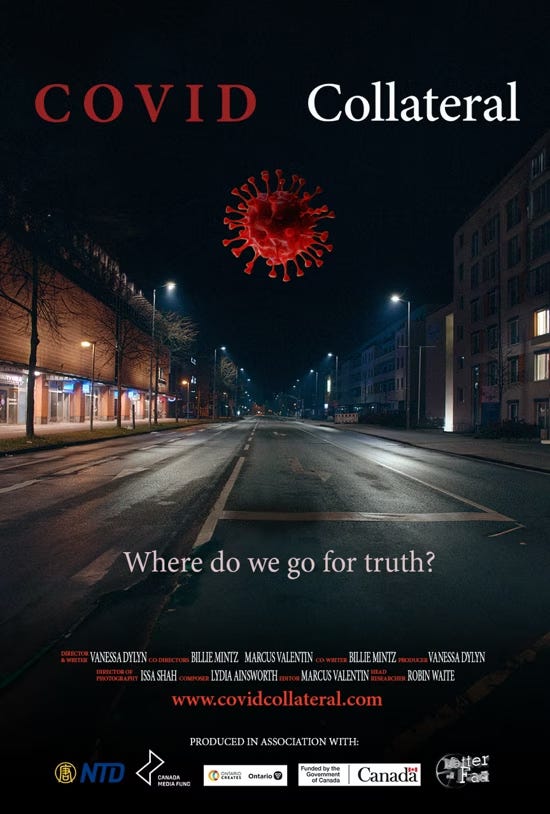
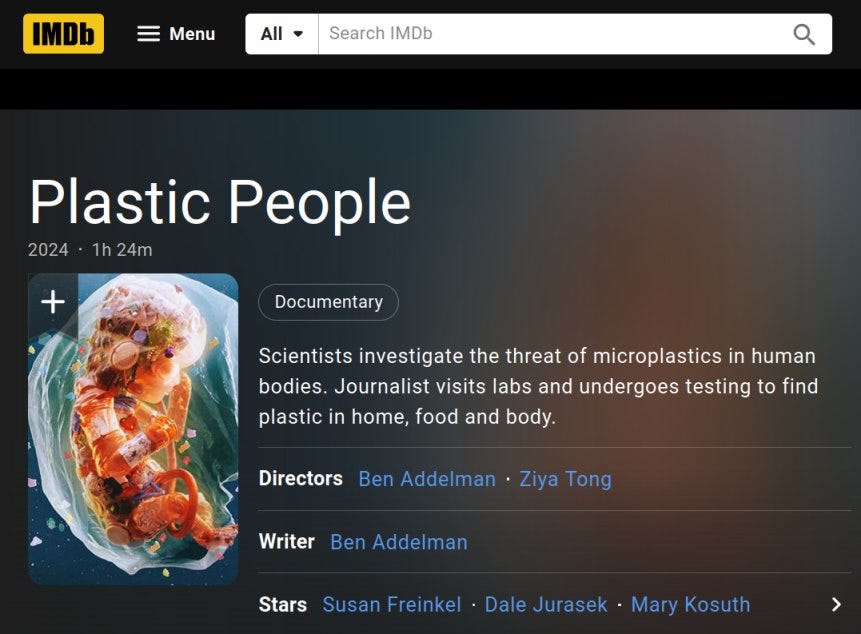
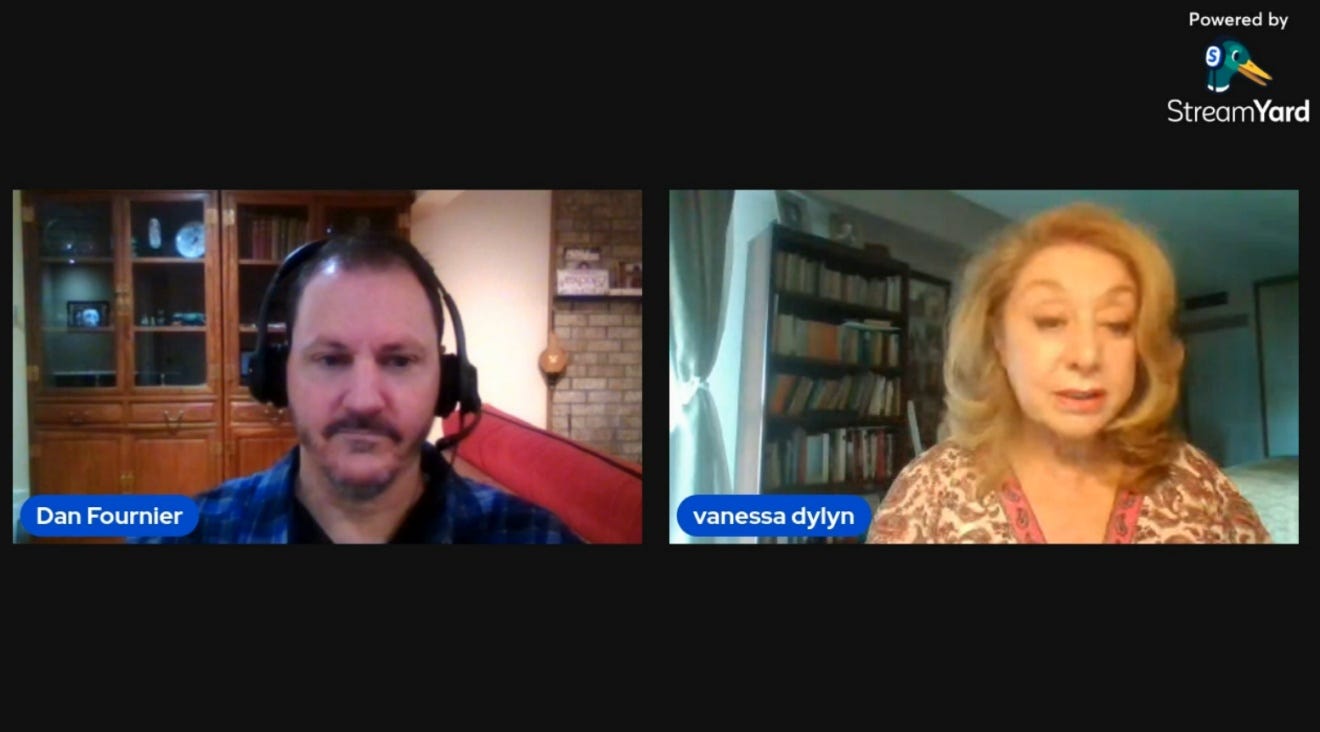
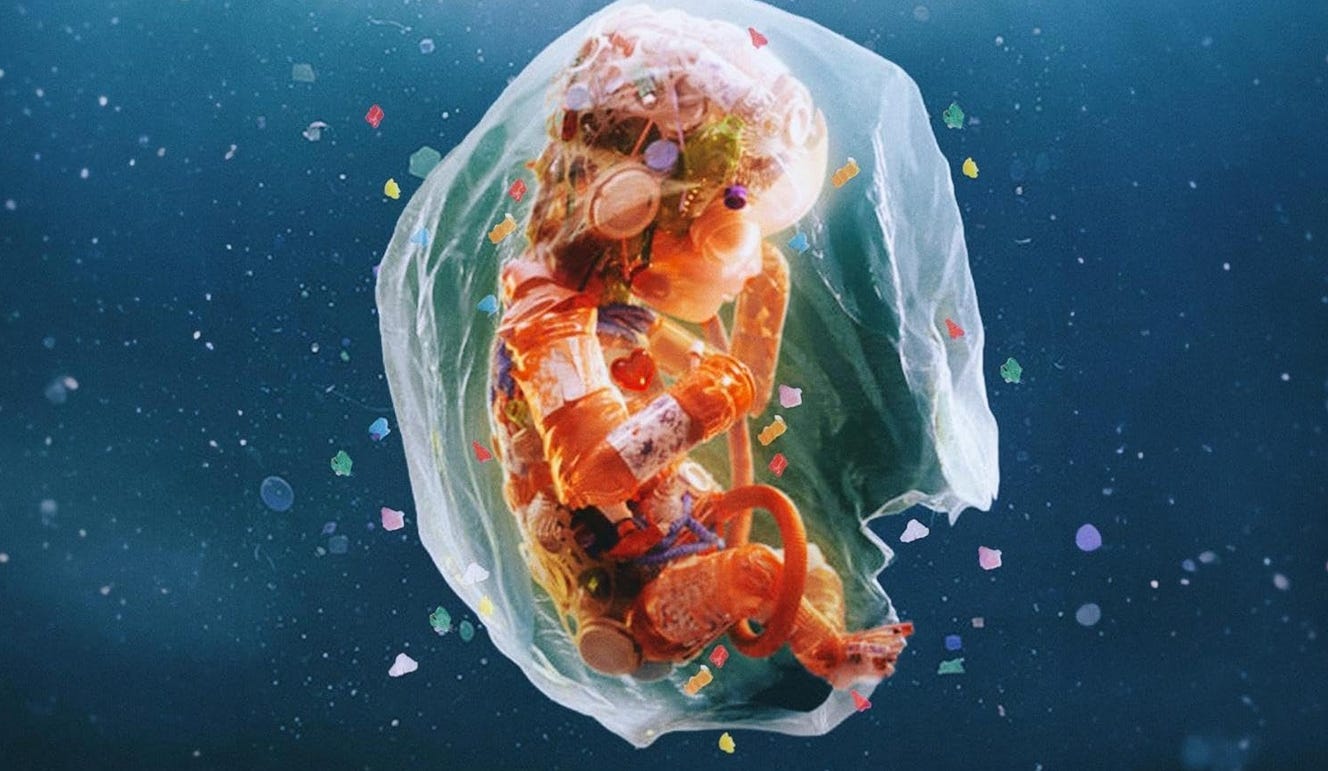

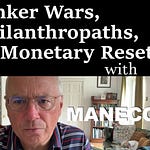


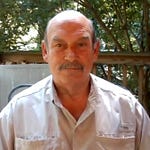

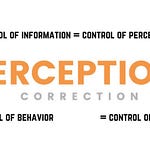


Share this post